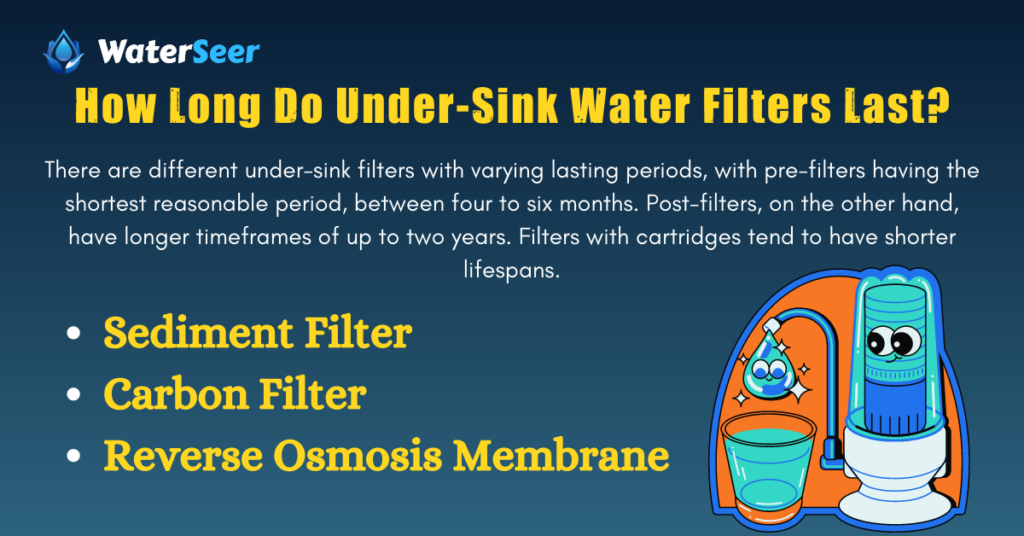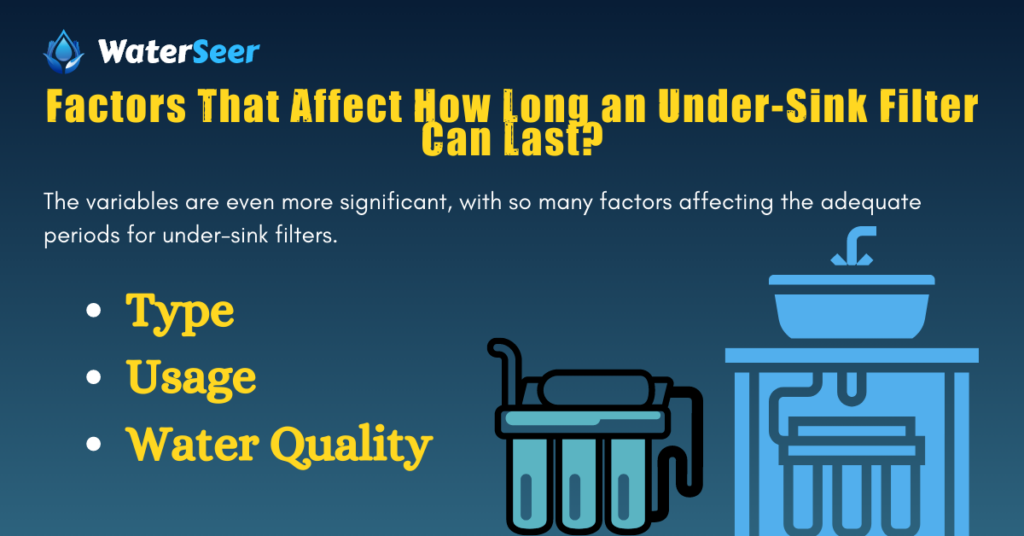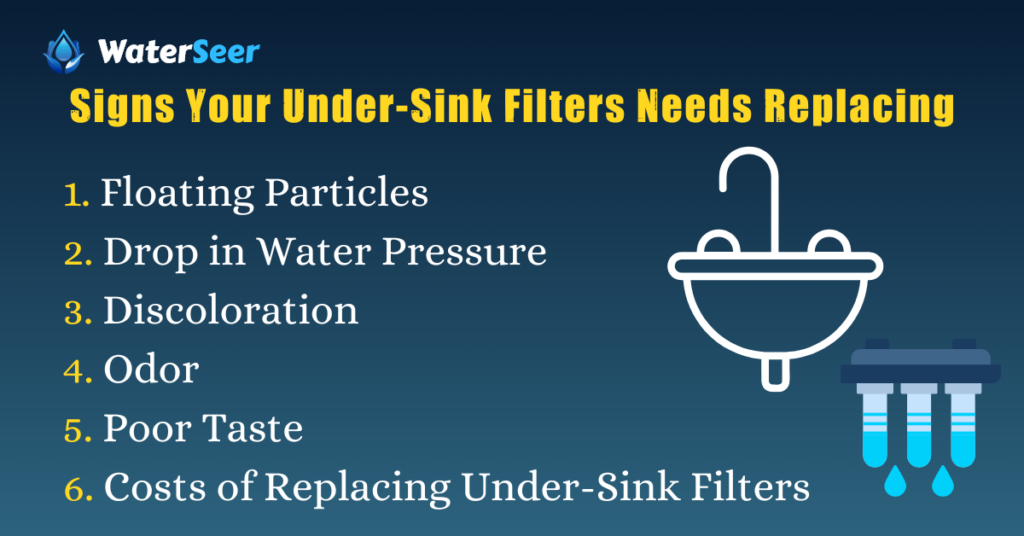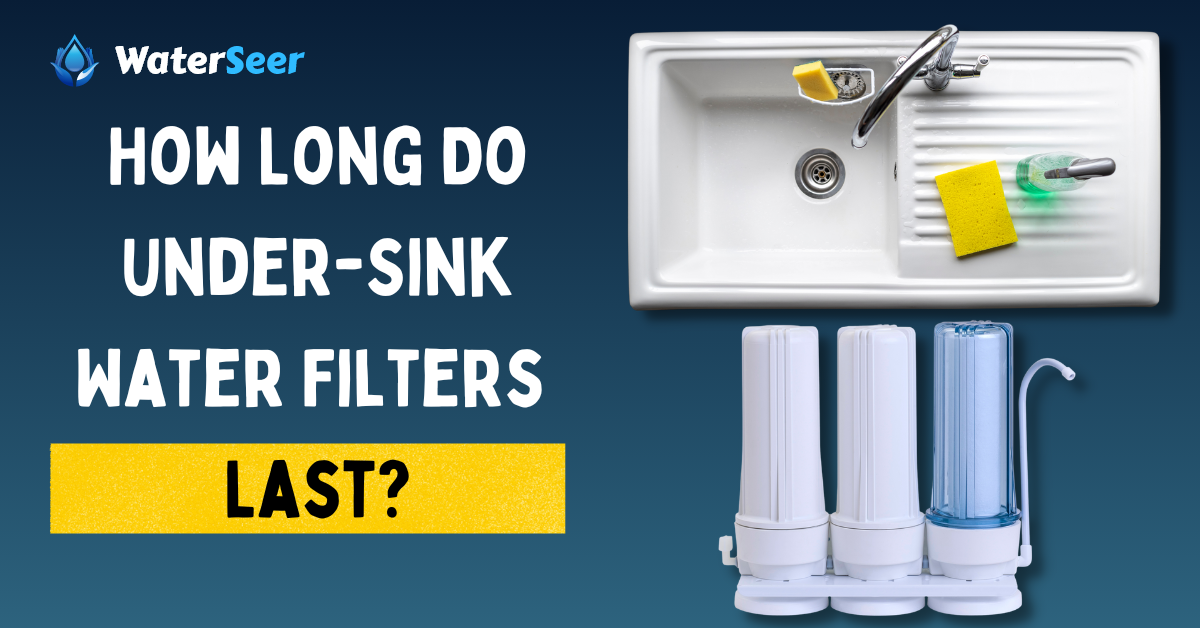Installing an under-sink water filter at home will provide stable drinking water from your kitchen faucet. This filter type is connected to the sink’s water line and often hidden away as they remain under the sink. While under-sink filters are some of the most effective for drinking water, they do not last forever. They would need replacing or cleaning.
Most people need to pay more attention to their under-sink filters since they remain out of sight till they stop working. It is vital to determine how long these useful water purification tools can last before they are damaged or clogged. It will help you to maintain your routine and continue using clean water.
Paying extra attention to a tool preventing several illnesses should be of utmost priority. It’s why we’re discussing the valuable period of an under-sink and the right time to replace filter cartridges. Beyond the time under-sink filters last, this guide will share several other tips.
Benefits of an Under-Sink Filter
Under-sink filters are effective in-house filters connected under the sink, usually with separate faucets. They are direct filters cleaning only drinking water which will typically improve the lifespan of the filter cartridge.
These filters can remove sediments, taste and smell, ions, and more from the water depending on the number of filtration phases and the particular filters. Multi-stage filters are typically safer and will remove more dirt with different filters. The ability of under-sink filters to deliver clean drinking water quickly without waiting for a reservoir tank to be completed is tied to the specific filters involved.
The cost of fixing and maintaining an under-sink filter is minimal, with maintenance only necessary when changing the filters. Comparing the cost of setup and filter-changing with buying drinking water will show an under-sink filter’s affordability.
Why Do You Need to Change Filters?
If you’re wondering why filters need to be replaced or have reasonable periods, let me tell you that the dirt the filters remove from the water may eventually block the filter. An under-sink filter’s limited lifespan depends on many factors, but they all feature a general helpful period.
The contaminants blocking the filters can pass through the pores and reach your water when the filter stops working. Sometimes, the impurities can block the drain or sinkhole such that water no longer passes.
You should replace your filter when due to prevent harmful illnesses, keep water flowing, and prevent blockages. Luckily, changing filters is straightforward and can be completed without expert-level plumbing experience.
How Long Do Under-Sink Water Filters Last?

Typically, under-sink water filter valuable periods are indicated based on the volume of water filtered in gallons or by the number of years or months in use, with the volume being the more accurate measurement. You can calculate the months before your filter needs changing by checking the average gallons of water it filters daily.
There are different under-sink filters with varying lasting periods, with pre-filters having the shortest reasonable period, between four to six months. Post-filters, on the other hand, have longer timeframes of up to two years. Filters with cartridges tend to have shorter lifespans.
We’ll see this period for the main under-sink filter types to get a more accurate idea of the lasting period of under-sink filters. Remember that these are just estimates and often require changing only the filters, not the whole filtration system, since they all have varying valuable periods.
1. Sediment Filter
A sediment filter is usually the first in a multi-stage and reverse osmosis system and the only filter in a single-stage procedure. It removes large sediments from the water, including dust, dirt, and rust. A sediment filter will last between six months to one year.
2. Carbon Filter
Several carbon filters are available, with the carbon block filter being the most common type. These filters have smaller micron ratings of 0.5 to 1.0 enabling them to remove smaller particles from the water and share a similar lasting period with sediment filters at about six months to one year.
3. Reverse Osmosis Membrane
A reverse osmosis membrane is a more sophisticated under-sink filter system with a semipermeable membrane that filters water and removes impurities like dissolved salts, bacteria, and more. These systems are long-lasting and can stay helpful for two to five years before requiring maintenance.
Factors That Affect How Long an Under-Sink Filter Can Last?

The variables are even more significant, with so many factors affecting the adequate periods for under-sink filters. We should consider these factors to get a good glimpse of the time these filters will remain useful before needing maintenance.
1. Type
The type of under-sink filter you have is one of the primary deciders of how long the filters can last. Some will last longer than others due to the difference in build quality, brand, filtration method, etc. Certain brands are associated with superior-quality products and will usually have more extended usage periods.
2. Usage
The frequency at which you use the filters will also affect how long they can last. Usage is vital as some under-sink filter usage periods are marked in gallons. Systems that are in use more will wear quickly and have to deal with more dirt over a short period. Typically, the more the usage, the less time it can last.
Water usage depends on the number of people drinking from the faucet. It can override the time the manufacturer sets, as these factors weren’t considered when estimated. Large families require more gallons of water daily than homes with only a few occupants.
3. Water Quality
More work done by the filter equates to more contaminants it has to remove and, ultimately, a lesser reasonable period. After a water test, you can determine the impurity level in your water and the type of filters to use. Water with fewer pollutants will last longer since the filter is not overworked, and it’ll take a long time for the filter to be blocked by residues.
Signs Your Under-Sink Filters Needs Replacing

The manufacturers will usually estimate how long they expect the filter to last. However, this estimate is only sometimes accurate since several factors can affect the lasting period. That’s why paying attention to your system can show you early signs that the effectiveness is reducing and you need to replace the filters.
1. Floating Particles
The presence of floating particles in your water usually indicates mold in the water, which causes several illnesses. Finding these particles floating in your drinking water means the filter is no longer effective and needs a replacement.
2. Drop in Water Pressure
Although a drop in water pressure is not so common in under-sink filters, it is still a good indicator of a bad filter. When the filter is clogged, the water flow is significantly reduced.
3. Discoloration
The presence of rust in your water can lead to discoloration and even staining of cups. When the system can no longer stop dirt from passing through, you can see the signs with the discoloration of water due to the presence of copper sulfate, iron, and manganese.
4. Odor
Foul-smelling water is repulsive and indicates the presence of impurities like sulfur, which may show your filter is no longer effective and needs replacing.
5. Poor Taste
Poor-tasting water indicates the presence of dissolved and undissolved chemicals in the water. It shows the poor job the filter is doing in removing these contaminants. The filter dealing with chemicals like chlorine, dirt, and bacteria is usually the culprit here that requires replacement.
6. Costs of Replacing Under-Sink Filters
Replacing under-sink filters is significantly reduced if you’re a DIYer, as labor costs can be pretty steep for some of these projects. Most filters cost around $150, with reverse osmosis filters costing about $350. Luckily, reverse osmosis filters do not require frequent replacement.
FAQ’s
Under-sink filters are effective drinking water cleaners, but changing the filters can prove difficult for some. This is why we’ve compiled these frequently asked questions about how long the filter should last.
Do I need to change under-sink filters every six months?
No, you don’t need to change the filters every six months. Instead, you must consider the type, water quality, and usage to determine when to replace the filter.
Do under-sink filters work?
Under-sink filters are effective for clean drinking water as they utilize water pressure to push the water through the filtration system.
What happens if you keep your under-sink water system unchanged?
The system retains effectiveness when it is changed at the right time. Sometimes the morons get blocked, and dirt easily passes through and into your water.
Summary
Getting the correct time your under-sink filter will last will allow you to plan for maintenance while avoiding drinking contaminated water. You can get a close estimate with the manufacturer’s guide and factors affecting the filters’ length.

